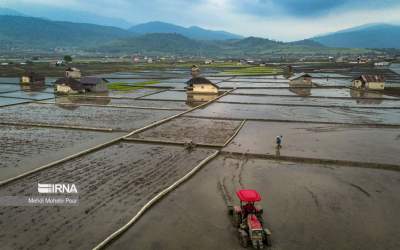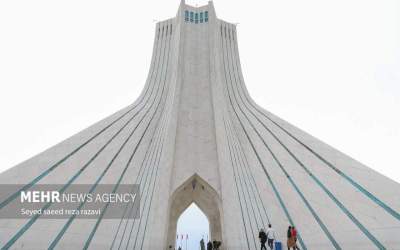Friday 25 August 2017 - 12:49
Story Code : 273577
European carmakers on the road back to Iran after nuclear deal
With Iran under sanctions, the only western automaker assembling vehicles in the Islamic republic was Renault, which offered just one model. Some new cars were imported, but they were subject to 100 per cent import duty, meaning they were far beyond his budget. So Amir, a university lecturer, reluctantly opted for a Tiba, an affordable Iranian car.
Four years later, the 39-year-old is dreaming of replacing the Tiba with a European model.
�My next car will be a Peugeot 2008 [SUV] which looks gorgeous,� Amir says. �It is inspiring to see new models and flexible payment terms?.?.?.?which means I may be able to finally buy a European-made car.�
His enthusiasm is fuelled by a flurry of interest in Iran by European carmakers keen to tap into an oil-rich nation with a largely urban population of 80m. The auto industry is one of the few sectors outside oil in which multinationals are backing their talk of interest in the Islamic republic with substantial investment, 20 months after a nuclear deal Tehran signed with world powers was implemented.
Renault signed a �660m agreement with Iran this month to increase its production capacity from 200,000 to 350,000 cars annually from next year, with two more models on offer in the country. Peugeot, which pulled out of the market in 2012 because of sanctions, signed a joint venture last year to invest �400m by 2020 to produce 200,000 new cars.
The first Peugeot cars partly produced in Iran � including the 2008 model Amir has his eye on � will be available this year. Volkswagen is also returning to Iran�s market after 17 years as it partners with an Iranian firm to import its vehicles. �I believe the car sector was the first industry to start reaping the fruits of the nuclear deal,� says Ahmad Nemat-Bakhsh, head of Iran�s Vehicle Manufacturers� Association. �People are dissatisfied with old models like [South Korea�s] Kia Pride or the Peugeot 405. With new contracts, Iranian roads will have a different image.�
The automakers� investment in Iran is an important boost for Hassan Rouhani, the president, who has sought to use the nuclear deal to attract foreign investment to help tackle high youth unemployment. These were core themes of a campaign that secured him a second term at a presidential election in May. Many sanctions on Iran were lifted after the accord came into effect. But western companies have been wary of investing in the country because US sanctions related to Iran�s alleged financing of terrorism remain in place.
International banks avoid doing business there for fear of inadvertently aiding money laundering or terrorism. The investor uncertainty has been exacerbated by rising tensions between Tehran and the Trump administration, which has imposed additional sanctions on Iranian entities and individuals. But European car manufacturers appear undeterred. Thierry Bollor�, chief competitive officer at Renault, called Iran a �strategic� and �unique� partner. �In a rapidly expanding Iranian market, it was vital to implement plants, engineering and [a] purchasing centre,� he said at the ceremony in Tehran where he signed Renault�s new deal this month. �This joint venture will enable an acceleration of our growth in this country.�
Es�haq Jahangiri, Iran�s first vice-president, said last week that there was a time when foreign carmakers were reluctant to come to Iran�s market but now, �it is us putting conditions [on them]�. Iran has signed six joint ventures for the sector since the nuclear deal came into effect, government officials say. Such talk has raised hopes among Iranian auto industry officials that they can reach their target of increasing car production to 3m cars annually by 2025, up from 1.35m last year.
The auto sector is a critical source of jobs, employing more than 800,000, including in manufacturing and spare parts companies. Iran has about 10 carmakers � some that produce only a few dozen vehicles � and hundreds of parts companies. But the industry was forced to shed thousands of jobs during the presidency of Mahmoud Ahmadi-Nejad, when a combination of sanctions and populist polices plunged Iran into a deep economic crisis. Car production fell to a low of 737,061 in 2013. During that period, Iran turned increasingly to China for parts and cars, and about 100,000 Chinese vehicles are produced in the Islamic republic annually. Iran, however, remains a difficult place to do business, with an unwieldy state bureaucracy, low levels of transparency and a domestic banking sector burdened with large debts.
But Iranians are desperate for greater access to western products after years of isolation. And for Amir it is a simple choice. �I would be out of my mind to buy a Chinese car when I can buy a European car,� he says. �My wife [also a university teacher] and I have started saving money to hopefully buy the new Peugeot.�
# Tags










